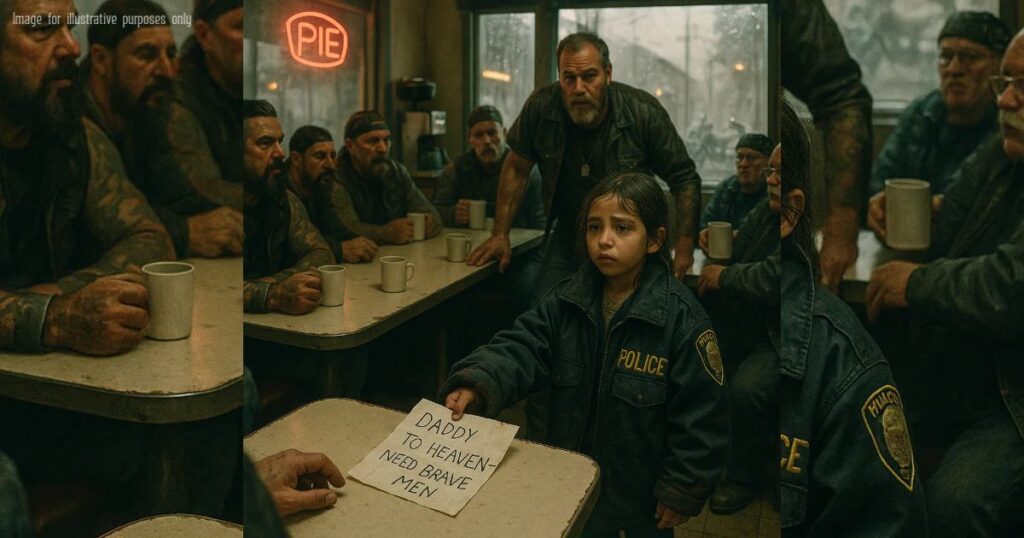She laughed, and it was the laugh of a seven-year-old in a too-big jacket without the weight.
At the door, she turned. “You ever think about that day?” she asked. “The storm, the lights, the way everybody forgot what they were supposed to argue about?”
“I think about the note,” I said. “How brave asks simple.”
“Me too,” she said. “Sometimes people don’t need us to fix the whole world. They just need us to show up with headlights.”
She left.
The bell talked to itself and settled down.
I looked up at the rocker on the wall, at the curve of the word that had carried me through so many miles, at the place where the corner had been cut out and given away on purpose.
We’d been called a lot of things.
Some of them we’d earned.
Some of them were lazy names thrown from passing cars.
None of them mattered as much as what we did when a child walked in wearing her father’s last day.
We didn’t solve the internet.
We didn’t cure addiction.
We didn’t end the weather.
What we did was smaller and, I think, bigger. We put what we had—names, patches, lamps, time—on the line between a family and the dark.
The bell jingled again. Gator stuck his head in. “You ready?” he said. “Toy run on 28. Sergeant Price is waiting at the light to wave us through.”
“I’m ready,” I said, and I was.
We rolled out two by two, mirrors catching the noon, chrome making sense out of sun.
Out on the highway, the wind pulled at my vest, and for a second I reached back the way you reach for a habit and remembered that the heavy piece was gone, on a wall and in a frame and in a life moving forward.
The space it left filled with air and with road and with something I don’t have a name for that feels a lot like mercy.
At the red light on 28, a patrol car idled.
Sergeant Price leaned out the window and gave the smallest of salutes. The light turned green. We moved as one.
Past the diner, past the chapel, past the place where the power used to flicker. The sky was ordinary in the good way. The town breathed.
Sometimes, in a country that forgets how to listen, you take your turn making a corridor of light. You do it with what you’ve got.
Engines. Headlamps. A child’s request.
And men and women who show up—steel on the outside, soft where it counts—walking somebody’s loved one, or someone’s last bad day, toward home.


